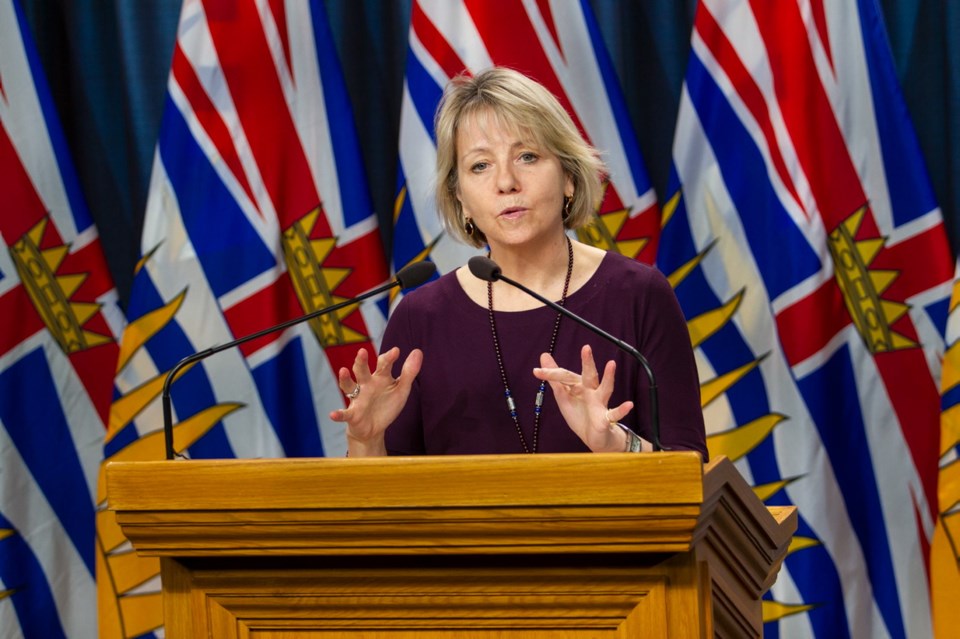British Columbia researchers are going to be looking at people’s susceptibility to COVID-19, the transmission routes the virus takes and also searching for a vaccine.
But they’re also researching the “infodemic” that’s accompanying the pandemic. That’s the ocean of virus-related information we’re all drowning in.
It’s a common phenomenon in any big emergency, but it’s intensified over the last two decades of social media growth.
Provincial health officer Dr. Bonnie Henry said one of the “interesting things that we're working on,” is understanding how the infodemic shapes attitudes.
“The myriad information that is out there on social media, on other platforms, and how that impacts people's behaviours through this pandemic.”
It will be a fascinating read. Especially if they don’t pull any punches and call BS when they see it.
The vast majority of information online is straight media coverage and well-meant advice or questions that arise from the hive.
But the number of second-guessing know-it-alls whose epidemiology experience amounts to a few Google searches is running at an all-time high.
Delving into whatever impact they’re having might be a valuable exercise.
People are perfectly entitled to weigh in on any aspect of the government’s response. In fact, scrutinizing that response carefully should be the default position.
But equally careful scrutiny is also needed of anyone who claims — often bursting with self-assurance — that: “They’re doing it all wrong.”
B.C. enjoyed the pinnacle of amateur BS last week with the delusional hot yoga instructor who pitched that as a cure for the virus.
Then he started “investigating” if it was all a hoax, complete with selfie-videos.
They didn’t need much research before Public Safety Minister Mike Farnworth called him a “narcissistic idiot.”
There is much more reasonable dissent on some specific issues. There’s been a spate of criticism of the virus testing regime, where more than 3,000 tests are done daily, focused mostly on high-risk populations — long term care homes and health workers.
A reader notified me the government wasn’t prepared and doesn’t have the resources.
Fair enough, but nobody on Earth was prepared for this.
He advocates “massive daily testing of the entire population symptoms or not symptoms.” But he’s short on the details of where to find millions of tests, and the immense loads of lab supplies to run them, and the hundreds more people needed to do all the work.
And what value is there in learning that the vast majority of people don’t have it? Would the temporary reassurance be worth all that effort?
The testing policy is still an interesting academic argument. But he also says the public is fed misinformation to lull them into having confidence in our leaders.
That’s the familiar launch point many use to turn doubts into conspiracy theories.
At the risk of being an apologist, I doubt it.
Elsewhere, a writer on a Kootenays website complained about “the never-ending secrecy demonstrated by health officials.”This, after more than 40 consecutive daily consecutive briefings on COVID-19, where every question asked was answered.
His point was partly about the failure to identify every community where there’s been a positive test, which he said is part of longstanding practice to keep the public in the dark.
But what’s the value of knowing someone in your community has it? We’re already assuming everyone has it. Confirming a case in a community wouldn’t change behaviour by much.
And positive cases are already isolated to some extent, or in hospital.
There are also scattered arguments about the use of masks. There are perfectly legitimate questions about B.C.’s policy on masks, particularly since it’s evolved slightly.
Wearing them was initially discouraged because there were and are a limited number of medical-grade ones and they’re needed by health care workers. Plus, the risk was lower then.
Henry has stressed they don’t protect the wearer, although they do limit transmission if the wearer is infected.
Now the national stance is that wearing non-medical masks is at least accepted, if not condoned.
Henry said it’s not a recommendation, but “a permissive use, if you will.
“It’s an option ... we need to be very careful not to say that it’s required or recommended for everybody.”
It’s still a free country, so argue all these points as you see fit. But do so on the basis of solid information.



